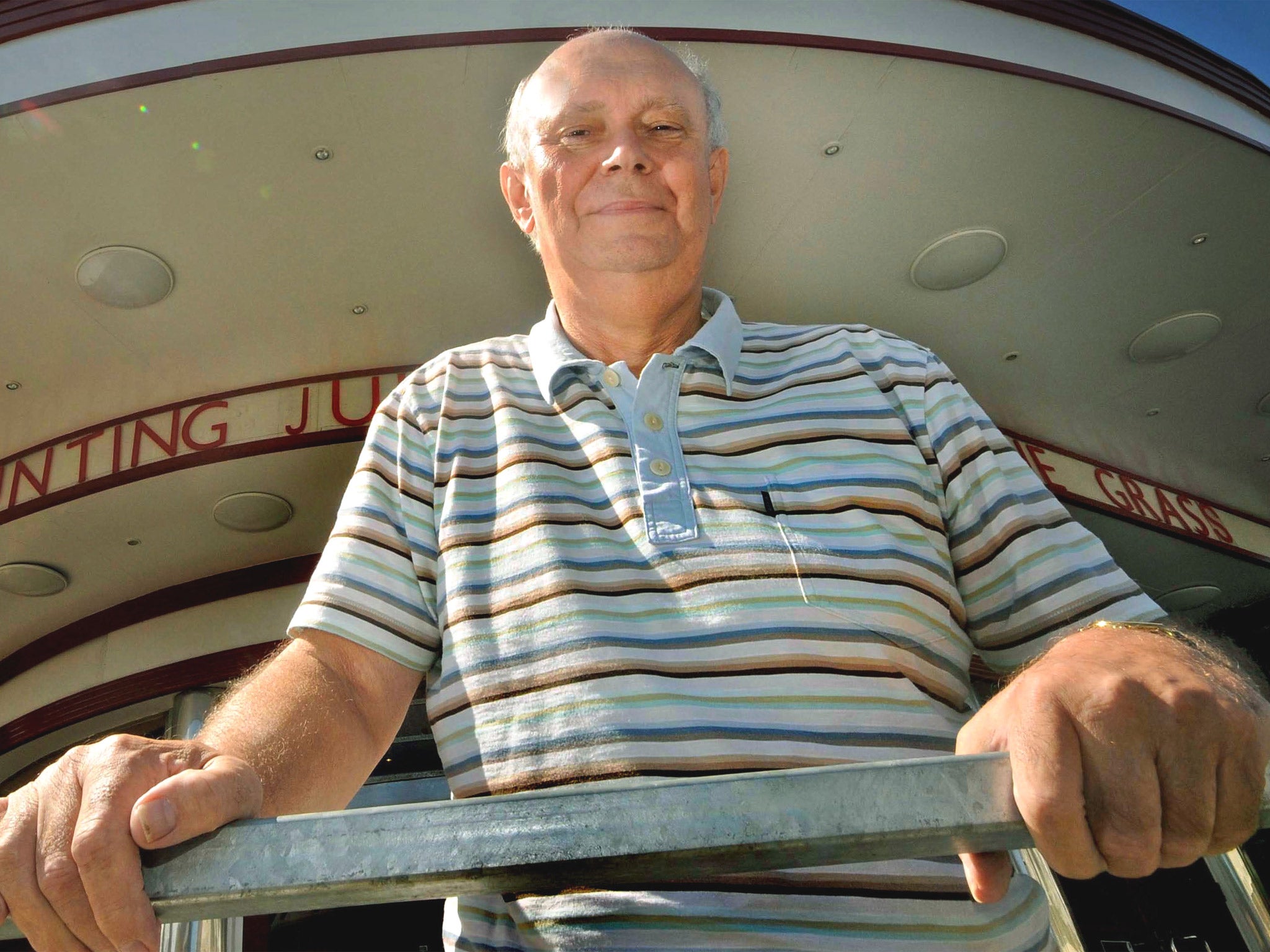Sir Alan Ayckbourn takes a chance, musically speaking
With flops such as ‘Jeeves!’ behind him, the playwright is to tackle again a dramatic form where success has been elusive

“I’ve done an awful lot of musicals and I have an abysmal track record,” admits Sir Alan Ayckbourn, choosing an unusual way to promote his latest project.
For Sir Alan, regarded as Britain’s most prolific living playwright, is to brave a dramatic form with which he has struggled in the past as he prepares to direct a new musical adaptation of his 1998 play The Boy Who Fell Into a Book.
Thus far, he has found success in the form elusive. Among the productions that failed to find an audience were Suburban Strains in 1980, which was staged five years after the ill-fated Jeeves! with Lord (Andrew) Lloyd-Webber. It closed after just 38 performances.
“That’s one which Andrew has never forgotten,” Sir Alan said at a press conference in London on Wednesday. “We revived it in 1996 as By Jeeves, which was quite a success at Scarborough. That’s probably my nearest to being a hit musical, but certainly by Andrew’s standards it was a dismal failure.”
But with Paul James adapting the play and providing the lyrics, and Cathy Shostak and Eric Angus composing the music, he feels more confident. “They asked me and I said: ‘Go for it you mad fools’,” he said.
It is one of two works involving Sir Alan to be announced as part of the summer programme at the Stephen Joseph Theatre in Scarborough. The other is a new play, his 78th, coming in the year of his 75th birthday, which is being billed as “a unique adventure in live theatre”.
Sir Alan said his remarkable output remained dependent on ideas. He woke up one day shortly after having a stroke in 2006 and for the first time, the creativity failed to come. “I can’t really legislate for that,” he said. “I felt very, very lonely... I’d had good ideas for plays since I was 17. It was a very empty feeling. Thank God, after a few months another idea popped its head above the parapet.”
He has no plans to put down the pen but is now also driven by directing. “If I just wrote I’d probably die of loneliness. Just going into the rehearsal room with a dozen or so likeminded people keeps me going.”
The new play is Roundelay, which comprises five short plays which, in a novel twist, will be performed in a random order each night. “I want to surprise myself,” he said of creating new work.
A member of the audience will pick out different coloured ping-pong balls to decide the order of the short works, which are entitled The Judge, The Novelist, The Politician, The Star and The Agent.
“It is an event. I always want to make theatre alive,” Sir Alan said, adding that he strives to bring something different to people who are used to “so much pre-recorded stuff”.
“Theatre has possibly lost something. We all try desperately to polish it,” he continued. “Theatre has realised somewhat belatedly that it can no longer provide an adequate competition for kids watching videos or playing computer games. It has to give it the ‘liveness’ back…If we have an air of spontaneity and excitement, I’m sure people will come back.”
The Hampstead-born playwright began his career in theatre at the age of 17 and the following year became a stage manager and actor at the Library Theatre in Scarborough. It was there he met Stephen Joseph, who would become his mentor.
His first play, The Square Cat was staged in 1959, and since then many of his plays have transferred to the West End and the National Theatre. His directing career has also flourished.
Sir Alan became artistic director of the Library in 1972, and when the theatre moved to a recently-shuttered Odeon cinema nearby in 1996 it was renamed the Stephen Joseph Theatre.
Chris Monks succeeded Sir Alan as artistic director in 2009. On Wednesday, he announced the summer season, which included his adaptation of crime novel The Last Train to Scarborough, which he described as “Raymond Chandler meets Geoff Boycott”. He will also direct Cox & Box – Mrs Bouncer’s Legacy, a comic opera by Sir Arthur Sullivan, to which he has added a contemporary second act.
Funding cuts to theatres, which have left those outside London particularly exposed, mean that the outlook is “very bleak” for some regional spaces, Sir Alan said. “We are all having to reapply for our jobs. It really is a little bit dispiriting.”
He added that a lot of work used to come from the regions from playwrights such as himself, Willy Russell and John Godber, adding: “We’re slowly drying up.”
Join our commenting forum
Join thought-provoking conversations, follow other Independent readers and see their replies
Comments